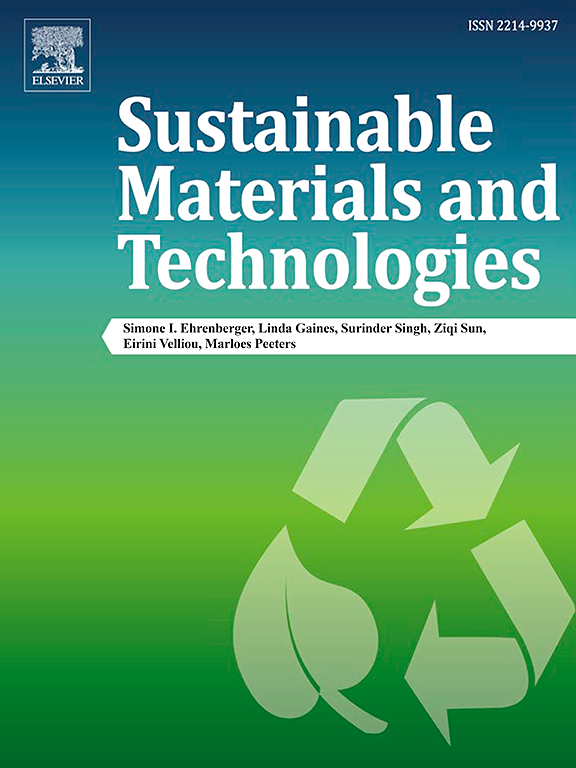Cryogenic assisted abrasive waterjet machining of Ti-6Al-4V alloy: Thermo-mechanical optimization and AI-based surface integrity prediction
IF 9.2
2区 工程技术
Q1 ENERGY & FUELS
引用次数: 0
Abstract
This study investigates the optimization of surface integrity in Ti-6Al-4V alloy through cryogenically assisted abrasive waterjet machining (CAAWJM), focusing on the regulation of thermo-mechanical mediated performance using liquid nitrogen (LN₂) deep cooling. While conventional abrasive waterjet machining (AWJM) offers distinct advantages for difficult-to-machine materials, such as titanium alloys, its inherent transient high-temperature effects can induce microstructural damage and thermal instability. Results demonstrated that LN₂ integration effectively reduces peak temperatures by 42 % while enhancing cooling rates, thereby substantially mitigating thermal degradation. Microstructural analyses reveal that CAAWJM promotes grain refinement (58 % reduction in α-Ti grain size), increases high-angle grain boundaries (up to 60.2 %), and stabilizes the β-phase (28 % higher retention compared to AWJM). Mechanical testing shows a 42 % improvement in microhardness near the jet impact zone, accompanied by a substantial reduction in surface roughness due to suppressed abrasive embedding and oxidation (TiO₂ content decreased by 42.48 %). A novel deep learning model (Bootstrap + TabPFN) is developed to predict surface integrity, achieving an R2 of 0.955. These findings establish CAAWJM as a promising strategy for high-integrity machining of Ti-6Al-4V alloy, with implications for aerospace and biomedical applications.

低温辅助磨料水射流加工Ti-6Al-4V合金:热力学优化和基于ai的表面完整性预测
本研究研究了低温辅助磨料水射流加工(CAAWJM)对Ti-6Al-4V合金表面完整性的优化,重点研究了液氮(LN 2)深度冷却对热机械中介性能的调节。虽然传统的磨料水射流加工(AWJM)对钛合金等难加工材料具有明显的优势,但其固有的瞬态高温效应会导致微观组织损伤和热不稳定。结果表明,LN 2集成有效地降低了42%的峰值温度,同时提高了冷却速度,从而大大减轻了热降解。显微组织分析表明,CAAWJM促进了晶粒细化(α-Ti晶粒尺寸减小58%),增加了高角度晶界(高达60.2%),并稳定了β相(比AWJM高28%)。力学测试表明,射流冲击区附近的显微硬度提高了42%,同时由于抑制了磨料包埋和氧化,表面粗糙度大幅降低(tio_2含量降低了42.48%)。开发了一种新的深度学习模型(Bootstrap + TabPFN)来预测表面完整性,R2为0.955。这些发现表明,CAAWJM是Ti-6Al-4V合金高完整性加工的一种有前途的策略,对航空航天和生物医学应用具有重要意义。
本文章由计算机程序翻译,如有差异,请以英文原文为准。
求助全文
约1分钟内获得全文
求助全文
来源期刊

Sustainable Materials and Technologies
Energy-Renewable Energy, Sustainability and the Environment
CiteScore
13.40
自引率
4.20%
发文量
158
审稿时长
45 days
期刊介绍:
Sustainable Materials and Technologies (SM&T), an international, cross-disciplinary, fully open access journal published by Elsevier, focuses on original full-length research articles and reviews. It covers applied or fundamental science of nano-, micro-, meso-, and macro-scale aspects of materials and technologies for sustainable development. SM&T gives special attention to contributions that bridge the knowledge gap between materials and system designs.
 求助内容:
求助内容: 应助结果提醒方式:
应助结果提醒方式:


